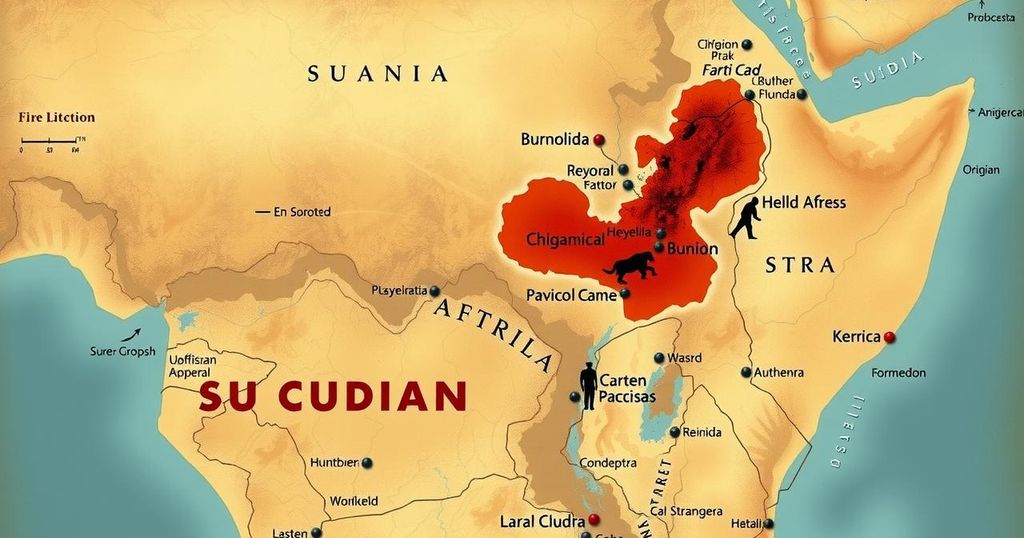Sudan has accused the UAE of genocide complicity at the ICJ, citing support for the RSF in their civil war. The UAE’s interests in Sudan include its natural resources and strategic location. Ties between the UAE and Sudanese military factions emerged from previous cooperation in Yemen. Analysts suggest the UAE seeks to expand influence and counter Saudi power in the region. The ICJ case may pose reputational risks for the UAE despite its significant political clout.
Sudan has officially accused the United Arab Emirates (UAE) of complicity in genocide at the International Court of Justice (ICJ), which highlights the UAE’s alleged engagement in the ongoing civil war in Sudan. The UAE has been accused of supporting the Rapid Support Forces (RSF), who have been in conflict with the Sudanese army for almost two years, although the Gulf nation adamantly denies these claims.
Sudan’s significance to the UAE stems from its rich natural resources and strategic location. As one of Africa’s largest nations, Sudan possesses extensive agricultural lands, natural gas, and ranks as the continent’s third-largest gold producer. The UAE perceives Sudan as a vital investment hub, particularly for its mineral and trade potential, as articulated by experts in Middle Eastern security and development.
In 2019, a coup saw Sudan’s army chief Abdel Fattah al-Burhan seize power together with RSF leader Mohamed Hamdan Daglo, known as Hemeti. Subsequent conflicts between these two figures have led to accusations against various nations, including the UAE, of supporting opposing factions. Political analysts assert that the UAE’s aims include expanding its influence in Sudan, a nation viewed as strategically important for the UAE’s regional interests.
The ties between the UAE and Sudanese military factions have roots in their cooperation in the Yemen conflict, where Sudan deployed troops under Saudi-led coalitions. This partnership nurtured links with the RSF, which also received UAE-backed support. While the UAE denies any assistance to the RSF, some analysts argue that this connection challenges Saudi interests and aligns with UAE’s desire to counter political Islamist movements.
Conflicting reports have emerged regarding war crimes committed during the current Sudanese strife, which has resulted in massive loss of life and displacement. International attention has focused on accusations against the RSF for targeting ethnic groups in a genocidal manner. Furthermore, both open and clandestine support from the UAE has reportedly fortified the RSF.
Sudan’s recent legal action at the ICJ aims to confront the UAE’s alleged role in the conflict, yet Emirati officials have dismissed it as merely a publicity endeavor. While ICJ rulings carry legal weight, they lack enforcement mechanisms. Analysts posit that the case may tarnish the UAE’s international image, even as the nation continues to wield considerable financial and political leverage.
The UAE’s alleged involvement in the Sudan conflict, highlighted by accusations of genocide and extensive support for the RSF, reveals the complexities of geopolitical ambitions in the region. As both nations navigate accusations and international scrutiny, the outcomes of the ICJ case will be closely monitored for their implications on UAE’s reputation and its strategic interests in Sudan.
Original Source: www.ndtv.com




